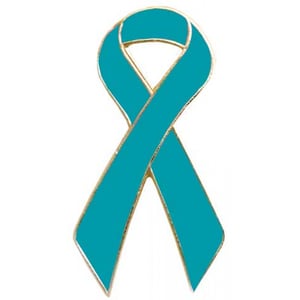 Like any living organism, cancer cells rely on fuel in order to survive and grow. Unfortunately for many, the growth of cancer cells is extremely deleterious to human health. That is why a major facet of cancer research currently involves locating and preventing the mechanism for fueling cancer cells.
Like any living organism, cancer cells rely on fuel in order to survive and grow. Unfortunately for many, the growth of cancer cells is extremely deleterious to human health. That is why a major facet of cancer research currently involves locating and preventing the mechanism for fueling cancer cells.
Tags: CA, University of California Los Angeles, cancer research, California, Los Angeles, Cancer Treatment, 2015, LAVS, UCLA, Research Funding, Life Science, Biotechnology Vendor Showcase, Southwest Region, Prostate cancer
 According to the National Cancer Institute (NCI), ovarian cancer accounts for approximately 3 percent of all cancers in women and is the fifth leading cause of cancer-related death among women in the United States. Ovarian cancer causes more deaths than any other female reproductive system cancer, due in part to a lack of symptoms during early stages and a lack of effective screening tests. In 2014, for example, an estimated 22,000 women were diagnosed with ovarian cancer in the United States, and approximately 14,000 died of the disease.
According to the National Cancer Institute (NCI), ovarian cancer accounts for approximately 3 percent of all cancers in women and is the fifth leading cause of cancer-related death among women in the United States. Ovarian cancer causes more deaths than any other female reproductive system cancer, due in part to a lack of symptoms during early stages and a lack of effective screening tests. In 2014, for example, an estimated 22,000 women were diagnosed with ovarian cancer in the United States, and approximately 14,000 died of the disease.
Tags: CA, University of California San Diego, cancer research, California, Cancer Treatment, Cancer, 2015, San Diego, SDVS, UCSD, Research Funding, UC San Diego, Biotechnology Vendor Showcase, NIH grants, ovarian cancer
A new study by science researchers at Fred Hutchinson Cancer Research Center found that a number of lifestyle changes may be able to reduce the risk of or manage esophageal cancer. People who don’t smoke, keep their weight down, get regular exercise, eat a diet rich in fruits and vegetables, don’t eat four hours before they go to sleep, and avoid foods and beverages that give you heartburn (including caffeine, alcohol, chocolate, peppermint, onions, green peppers and foods that are high in fat) have a greatly reduced risk of getting esophageal cancer. Another Fred Hutchinson study found that cholesterol-reducing drugs are also associated with reduced risk.
Tags: 2014, 2013, Fred Hutchinson Cancer Research Center, Washington, Medical Research, WA, Northwest, cancer research, WA research, Washington Life Science, Cancer Treatment, BioResearch Product Faire Event, Seattle, research science information, Hutch, Cancer Center
 In what is being hailed as a victory for both scientific research and patients' rights, the Supreme Court ruled unanimously yesterday that human genetic material cannot be patented. The case, Association for Molecular Pathology v. Myriad Genetics, has been working its way through the court system for a number of years now, led by plaintiffs including the ACLU, the American College of Medical Genetics, the American Society for Clinical Pathology, and numerous prominent genetic research scientists. The verdict invalidates the patents Myriad Genetics has held on breast cancer genes BRCA1 and BRCA2 since the 1990's and allows other labs besides theirs to test for mutations in those genes which, when present, strongly indicate a genetic predisposition to cancer. It also means that scientists can move forward in their genetic research without threat of being sued for copyright infringement. While the case was brought against Myriad specifically, the decision to disallow human gene patenting has profound implications for both scientific discovery and individual rights of ownership over our own genetic material.
In what is being hailed as a victory for both scientific research and patients' rights, the Supreme Court ruled unanimously yesterday that human genetic material cannot be patented. The case, Association for Molecular Pathology v. Myriad Genetics, has been working its way through the court system for a number of years now, led by plaintiffs including the ACLU, the American College of Medical Genetics, the American Society for Clinical Pathology, and numerous prominent genetic research scientists. The verdict invalidates the patents Myriad Genetics has held on breast cancer genes BRCA1 and BRCA2 since the 1990's and allows other labs besides theirs to test for mutations in those genes which, when present, strongly indicate a genetic predisposition to cancer. It also means that scientists can move forward in their genetic research without threat of being sued for copyright infringement. While the case was brought against Myriad specifically, the decision to disallow human gene patenting has profound implications for both scientific discovery and individual rights of ownership over our own genetic material.
Tags: 2014, CA, 2013, Bioresearch, gene patenting, cancer research, Southwest, Southwest life science marketing events, Cancer Treatment, San Diego, SDVS, Genetics, UC San Diego, biotech industry, Biotechnology Vendor Showcase
Memorial Sloan-Kettering Cancer Center cell engineering researchers and their clinician colleagues have been in the news recently for a successful experimental cell therapy. Called targeted immunotherapy, a patient's T cells are genetically altered in the lab, then reintroduced with the directive to target and kill cancer cells. The treatment was carried out on a group of adults who all suffered from a rapidly progressing form of leukemia that had not responded to chemotherapy. All five went into remission after the novel cell treatment, and three have stayed that way for a number of months. Results of the ongoing clinical trial appeared in the March 20 online edition of the journal Science Translational Medicine, along with an article in the New York Times.
Tags: 2014, Rockefeller University, 2013, Northeast, Leukemia, immunotherapy, cancer research, New York, Memorial Sloan-Kettering Cancer Center, Cancer Treatment, Immune System, Cell Research, RockU, BioResearch Product Faire Event, NY, New York City, MSKCC
The Knight Cancer Institute at Oregon Health & Science University (OHSU) in Portland has just announced an important partnership with San Diego-based bioprinting technology company Organovo. Research into the biology of cancer, especially how it metastasizes, has been complicated in the past by the limitations of animal models and cell cultures, which really don't tell us enough about the workings of cancer within a human being. Organovo creates living, 3-D human tissue using their bioprinting device, the NovoGen MMX (below). The partnership between OHSU and Organovo will allow cancer research at Knight Institute labs to much more closely model the complex architecture of malignancy within the human body, using in vitro tissue. Ultimately this will lead to the development of more accurate therapeutics and pre-clinical trials.
Tags: 2014, 2013, Oregon Health Sciences University, Oregon Health and Science University, Northwest, cancer research, Oregon, Cancer Treatment, bioprinting, BioResearch Product Faire Event, Funding, Front Line event, OR, OHSU, Portland, Northwest Region
Often growing up as a child you hear, “eat your veggies if you want to grow up to be big and strong.” With new research on triple negative breast cancer, that old saying might have to change to "eat your veggies if you want to keep cancer away". Recently, at the 2012 American Association of Pharmaceutical Scientists (AAPS) Annual Meeting, Mandip Sachdeva announced: "We are confident that the compounds we are currently working with are an effective treatment for triple-negative breast cancer. These compounds are safer for the patient than current treatments available".
Tags: Bioscience research, cancer research, Texas A&M University, Texas, 2012, Cancer Treatment, Cancer, College Station, BioResearch Product Faire Event, Texas A&M Research, Texas A&M Life Science Funding, TX, Texas A&M
Cancer research is hot, and the best in the field are hotly-courted by top cancer research centers, often with very attractive compensation packages in addition to state-of-the-art labs and equipment. As if fighting cancer weren't challenging enough, even renowned universities with world-class biomedical programs like the University of California San Diego have had some of their shining stars in the laboratory snatched away by big-money states like Texas in recent years. Not to be outdone or undermined, UCSD has recently engaged in some aggressive recruiting of its own and is proud to announce that two very important players in the cancer research field have joined the Moores Cancer Center faculty: Dr. Napoleone Ferrara (formerly of Genentech) and Dr. Razelle Kurzrock (formerly of MD Anderson at the University of Texas).
Tags: CA, University of California San Diego, cancer research, California, 2012, Cancer Treatment, Cancer, San Diego, UCSD, Biotechnology Vendor Showcase, Cancer Center, BVS

ARCHITECT'S RENDERING OF NEW PROTON BEAM THERAPY FACILITY IN ROCHESTER, MINN.(Courtesy of mayoclinic.org)
Tags: Minnesota, 2012, Rochester, Mayo Clinic, Cancer Treatment, Cancer, BioResearch Product Faire Event, MI, Proton, Treatment

